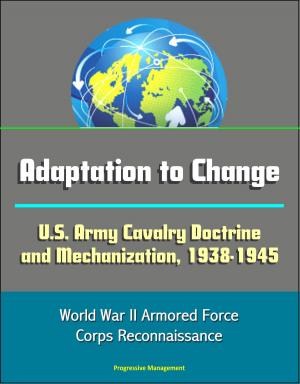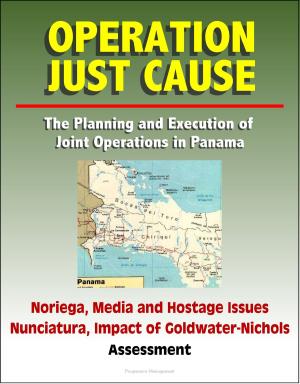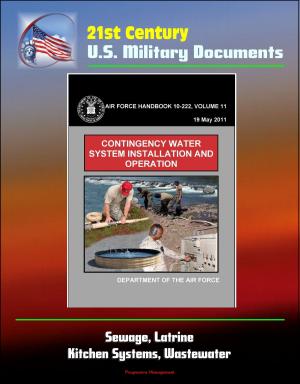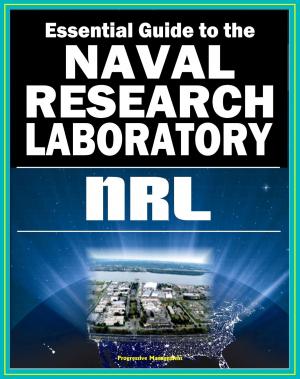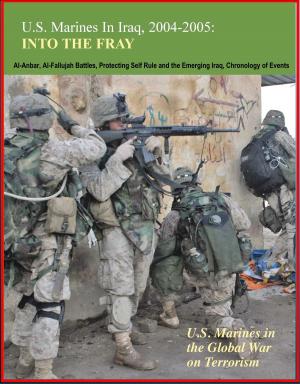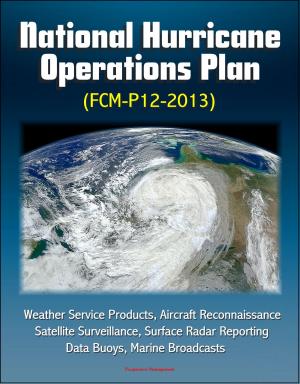U.S. Strategic Interests and Georgia's Prospects for NATO Membership: Russian Aggression in Georgia and Ukraine, Fear in Central and Eastern European Nations, Georgia Geostrategic Importance
Nonfiction, History, Asian, Former Soviet Republics, Military, United States| Author: | Progressive Management | ISBN: | 9781310509629 |
| Publisher: | Progressive Management | Publication: | March 27, 2016 |
| Imprint: | Smashwords Edition | Language: | English |
| Author: | Progressive Management |
| ISBN: | 9781310509629 |
| Publisher: | Progressive Management |
| Publication: | March 27, 2016 |
| Imprint: | Smashwords Edition |
| Language: | English |
Professionally converted for accurate flowing-text e-book format reproduction, this unique study analyzes Georgia's geostrategic importance and investigates links between Georgian and U.S. foreign policies as they relate to NATO enlargement. As regards Georgia, the key questions concern the extent to which the United States supports Tbilisi's candidacy for Alliance membership, and whether the United States and its NATO Allies are willing to accept the risks and responsibilities that would be incurred with Georgia's NATO membership. This thesis concludes that U.S. decisions regarding Georgia's candidacy for NATO membership will be of critical importance.
Many observers in NATO and European Union (EU) countries hold that Russia is attempting to challenge the increasing Western influence in Central and Eastern Europe and reassert itself as a regional and global superpower. The 2008 Russia-Georgia conflict and the ongoing crisis in Ukraine provide evidence in support of this theory. Twelve Central and Eastern European nations have nonetheless joined NATO since 1999, and others have pledged their membership aspirations. This fact alone suggests that a general fear of Russian aggression persists among Central and Eastern European nations, and that NATO enlargement is both justified and welcomed. This thesis examines Georgia's prospects for NATO membership and assesses U.S. strategic interests in this regard.
CHAPTER I * INTRODUCTION * A. SIGNIFICANCE OF THIS RESEARCH * B. LITERATURE REVIEW * C. POTENTIAL EXPLANATIONS AND HYPOTHESES * D. RESEARCH DESIGN * E. THESIS OVERVIEW * CHAPTER II * HISTORICAL OVERVIEW OF GEORGIA * A. DEMOGRAPHY * B. ECONOMY * C. ENERGY * D. GEORGIA AND THE WTO * E. POLITICS * F. MILITARY * CHAPTER III * U.S. STRATEGIC INTERESTS * A. FINANCIAL ASSISTANCE * B. SECURITY ASSISTANCE. * C. GEORGIA'S MILITARY CONTRIBUTIONS * D. U.S.-GEORGIA CHARTER ON STRATEGIC PARTNERSHIP * CHAPTER IV * GEORGIA'S PROSPECTS FOR NATO MEMBERSHIP * A. 1995 STUDY ON NATO ENLARGEMENT * B. GEORGIA'S MOTIVATIONS FOR AND PROGRESS TOWARD POTENTIAL NATO MEMBERSHIP * C. ISSUES HINDERING GEORGIA'S POTENTIAL NATO MEMBERSHIP * 1. Georgia's Unresolved Territorial Disputes in Abkhazia and the Tskhinvali Region/South Ossetia * 2. Georgia's Faltering Democratization and Need for Additional Defense Reforms * CHAPTER V * CONCLUSION
Professionally converted for accurate flowing-text e-book format reproduction, this unique study analyzes Georgia's geostrategic importance and investigates links between Georgian and U.S. foreign policies as they relate to NATO enlargement. As regards Georgia, the key questions concern the extent to which the United States supports Tbilisi's candidacy for Alliance membership, and whether the United States and its NATO Allies are willing to accept the risks and responsibilities that would be incurred with Georgia's NATO membership. This thesis concludes that U.S. decisions regarding Georgia's candidacy for NATO membership will be of critical importance.
Many observers in NATO and European Union (EU) countries hold that Russia is attempting to challenge the increasing Western influence in Central and Eastern Europe and reassert itself as a regional and global superpower. The 2008 Russia-Georgia conflict and the ongoing crisis in Ukraine provide evidence in support of this theory. Twelve Central and Eastern European nations have nonetheless joined NATO since 1999, and others have pledged their membership aspirations. This fact alone suggests that a general fear of Russian aggression persists among Central and Eastern European nations, and that NATO enlargement is both justified and welcomed. This thesis examines Georgia's prospects for NATO membership and assesses U.S. strategic interests in this regard.
CHAPTER I * INTRODUCTION * A. SIGNIFICANCE OF THIS RESEARCH * B. LITERATURE REVIEW * C. POTENTIAL EXPLANATIONS AND HYPOTHESES * D. RESEARCH DESIGN * E. THESIS OVERVIEW * CHAPTER II * HISTORICAL OVERVIEW OF GEORGIA * A. DEMOGRAPHY * B. ECONOMY * C. ENERGY * D. GEORGIA AND THE WTO * E. POLITICS * F. MILITARY * CHAPTER III * U.S. STRATEGIC INTERESTS * A. FINANCIAL ASSISTANCE * B. SECURITY ASSISTANCE. * C. GEORGIA'S MILITARY CONTRIBUTIONS * D. U.S.-GEORGIA CHARTER ON STRATEGIC PARTNERSHIP * CHAPTER IV * GEORGIA'S PROSPECTS FOR NATO MEMBERSHIP * A. 1995 STUDY ON NATO ENLARGEMENT * B. GEORGIA'S MOTIVATIONS FOR AND PROGRESS TOWARD POTENTIAL NATO MEMBERSHIP * C. ISSUES HINDERING GEORGIA'S POTENTIAL NATO MEMBERSHIP * 1. Georgia's Unresolved Territorial Disputes in Abkhazia and the Tskhinvali Region/South Ossetia * 2. Georgia's Faltering Democratization and Need for Additional Defense Reforms * CHAPTER V * CONCLUSION






